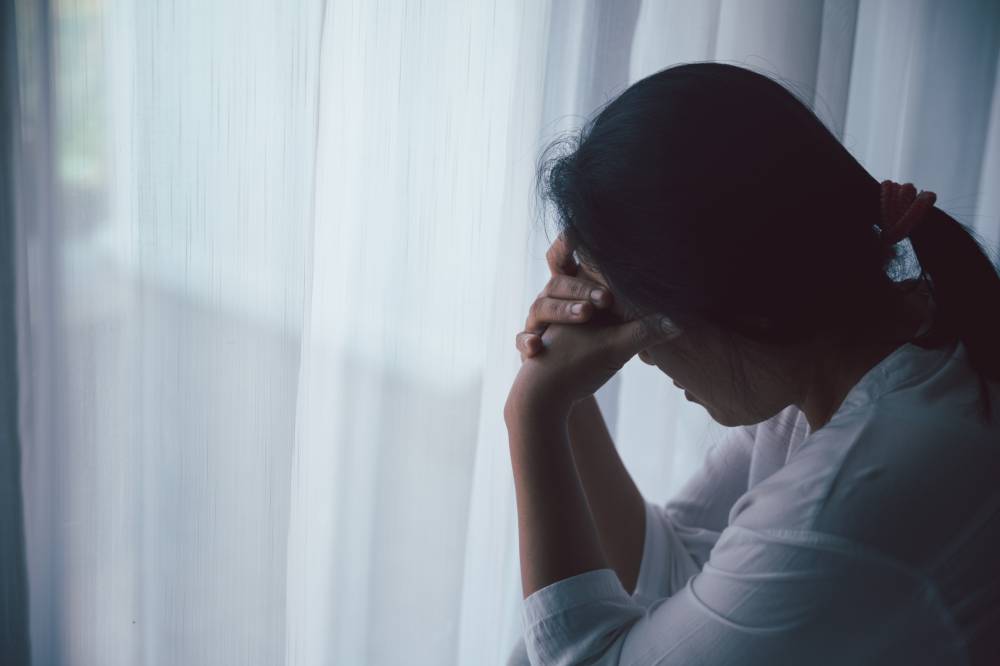Postpartum depression has more severe, long-lasting symptoms – Psychologists
Postpartum depression involves enduring and severe symptoms, including depressed mood, insomnia, withdrawal and suicidal thoughts.

SHAH ALAM - Psychologists have observed the broad spectrum of postpartum experiences, ranging from mild "baby blues" to more severe forms of depression.
Postpartum depression involved enduring and severe symptoms, including depressed mood, insomnia, withdrawal and suicidal thoughts.
In light of a recent tragedy in Johor, where a one-year-old boy was slit in the neck by his mother, Malaysian Psycho Spiritual Well-being Association deputy chairman, Psychologist and Suicidologist Dr Adnan Omar said the mother’s behaviour in this case was abnormal.
"As a psychologist, I feel that this behaviour is abnormal and it requires a thorough, systematic and deep understanding of the issue. This case is deeply concerning and not reflective of normal behaviour.
"While it may be linked to postpartum depression, there could be various underlying causes. Postpartum experiences can range from mild "baby blues" to more severe forms of depression.
"Baby blues typically occur within the first few days after childbirth and may last up to two weeks, manifesting as mood swings, anxiety and difficulty sleeping," he explained.
On the other hand, Adnan said postpartum depression or peripartum depression which begins during pregnancy, manifests with more severe and enduring symptoms like depressed mood, insomnia, social withdrawal and thoughts of self-harm or harm to the baby.
"It is crucial to recognise these symptoms and seek appropriate support and treatment for affected individuals. Postpartum depression symptoms typically emerge within the first few weeks after childbirth, but can also arise during pregnancy or up to a year after birth.
"If left untreated, it can persist for many months or longer," he said.
Adnan also said that in rare cases, postpartum psychosis, characterised by confusion, sleep disturbances, paranoia, obsessive thoughts about the baby, severe irritability, hallucinations, delusion and self-harm attempts, may develop after childbirth, significantly impairing the mother's ability to care for her child.
He emphasised the importance of seeking professional mental health support for postpartum depression, especially for first-time mothers, those with preexisting mental health conditions, those who experienced complications during pregnancy or childbirth and those lacking adequate support during this critical period.
"Unplanned or unwanted pregnancies, compounded by partner rejection or abandonment can also increase the risk of postpartum depression or psychosis.
"Having children should be a thoughtful and planned decision, involving discussions between both parents. Pregnancy and childbirth should be celebrated, but it's important to monitor your mental health during this time.
"If you experience symptoms of postpartum blues or depression, consult your healthcare provider. Seek immediate help if you suspect postpartum psychosis.
"Contact your healthcare provider if depression symptoms persist after two weeks, worsen, interfere with daily tasks, or include thoughts of harm," he said.
Echoing Adnan’s view, Universiti Pendidikan Sultan Idris (UPSI) Psychology Counselling expert Associate Professor Dr Fauziah Mohd Sa'ad said the incident was deeply disturbing and likely indicative of severe psychological distress or pathology.
She also said it would warrant a thorough investigation into the factors contributing to such extreme behaviour.
"This behaviour is not considered normal and while it could potentially be linked to postpartum depression or other mental health issues, it is essential to understand that not all individuals with postpartum depression exhibit violent behaviour.
"Postpartum depression can indeed last longer than the typical two-week period. It can persist for months or even years after childbirth," she added.
Fauziah said factors such as lack of treatment, inadequate support or underlying mental health conditions can contribute to the duration.
"Preventing postpartum depression involves various strategies, including adequate prenatal care, social support, education about mental health, early detection of symptoms and access to mental health services.
"Creating supportive environments for new mothers is crucial. Mothers experiencing postpartum depression can be helped through therapy, medication, support groups, self-care practices and practical assistance with childcare and household tasks," she said.
It was reported that an 18-month-old boy was killed, believed to have been slit in the neck by his mother in an incident in Pasir Gudang, Johor.
State police chief Commissioner M. Kumar said preliminary investigations found that the 32-year-old woman had also sent a photo of the child covered in blood to her husband via WhatsApp.
The woman has been remanded for seven days since March 17 to assist in the investigation into the alleged murder of her son.











